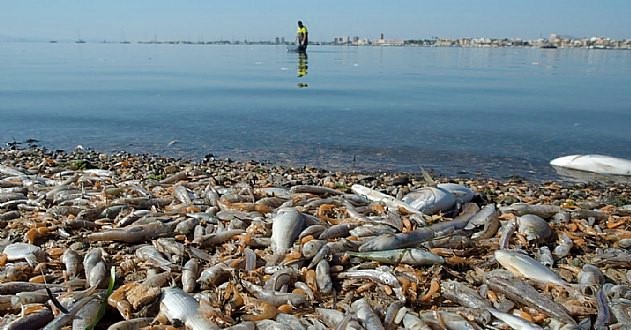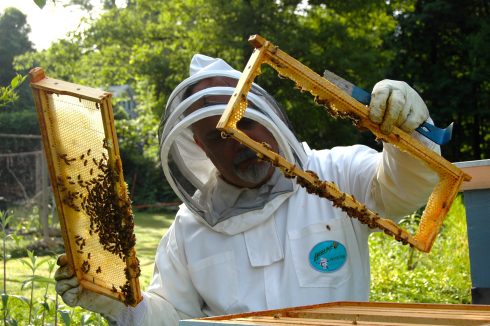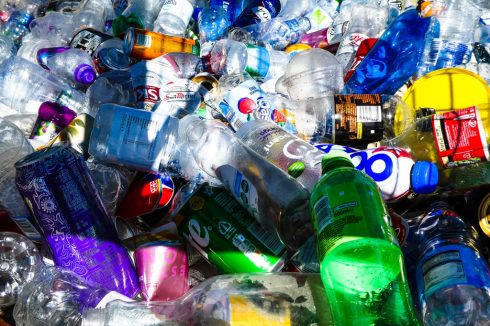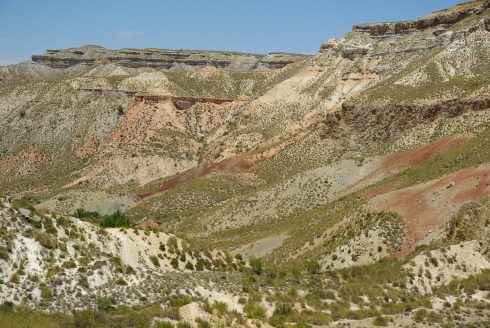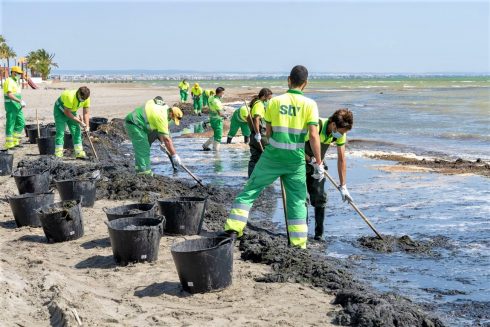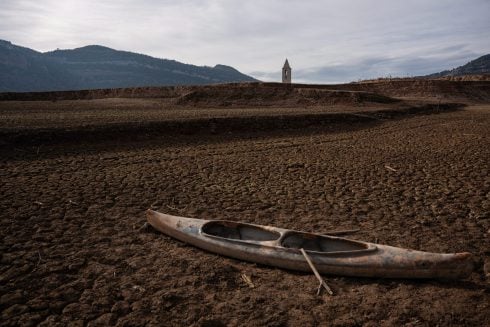THE Mar Menor lagoon has been given ‘personhood’ status in an effort to provide better protection for the threatened ecosystem.
A total of 1,600 square kilometres of the lagoon and nearby Murcia coastline will now be legally represented by a group of local officials, residents of the area and scientists.
The lagoon has suffered massive die-offs of marine life as it degrades due to coastal development and farming.
The initiative backed by more than 600,000 citizens will become law after the Senate in Madrid voted in favor of the proposal.
Environmental campaigners have spent the last four decades slamming the huge number of farms in the area that allowed their wastewater to enter the inland lagoon.
Warnings were first sounded when the dangers of intensive farming, urban development and mining were seen to pose a serious threat to the area’s ecosystem.
“I remember a scientist saying in 1980 that if farming developed close to the lagoon, then remnants of fertilisers and other nutrients would end up in the water and would annihilate the flora and fauna,” recalls one campaigner Isabel Rubio.
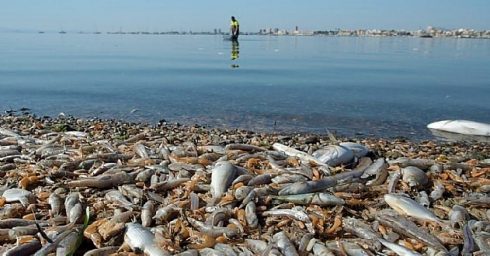
There were other issues too. Like much of coastal Spain, the 1970s saw tourists flood in from abroad leading to a construction boom with buildings constructed all along the shore, particularly in the mid-1980s.
Then followed dredging work to allow access for bigger boats that further damaged the delicate ecosystem.
But the biggest environmental threat came from the large number of unlicensed desalination plants that were introduced by farmers for irrigation around the Campo de Cartagena.
A law change in 1979 meant irrigated zones increased by over ten times, while an alarming quarter of the region became ‘watered’ illegally without licences.
It was good news, of course, for northern Europe, as internationally-exported crops saw their reliance on rain reduced.
Fruit and vegetables ended up on UK supermarket shelves with customers oblivious to the environmental price paid to get them there.
It was a similar situation in the Campo de Dalias in Almeria, where the aquifers were drained so fast by intensive agriculture, mostly under plastic, that the spread of desertification rapidly sped up.
However, while these green gold crops brought a big influx of cash to local landowners, they spelled further bad news for the Mar Menor – or Small Sea – lagoon.
Once wells and rainwater supplies dried out, the farmers began to use desalinated water which ended up mixing with fertilisers as well as residues from old opencast mines.
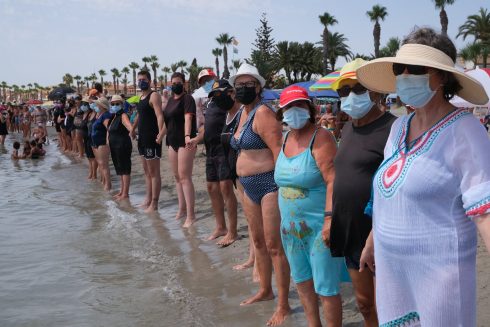
It was a chemical time bomb, which the politicians and water authorities appeared to be largely unconcerned about because farmers were in the money.
It has since emerged that huge numbers of these desalination plants were illegal and they were quite simply not properly monitored.
Tourist disaster
Unfortunately, the economic consequences stretch far beyond agriculture in a region where tourism now plays a vital role in the economy.
“It’s simple. This region depends on tourism and tourism depends on the lagoon, “ local expat Jo Scott told the Olive Press.
The councillor, who represents the PSOE party at Los Alcazares council, continued: “We are working on new ways to remove silt residues from our beaches because once you go into the water for a swim, it is crystal clear.”
Scott, who has lived in the area for 16 years, blames the regional Murcia government run by the Partido Popular since 1995. “The government has paid little attention to the Mar Menor for decades,” she declared.
Her town hall is now fighting to get a unique legal status for the area, giving it extra protection.
Four months ago, the Ministry for Ecological Transition in Madrid finally produced an ‘action plan’ aimed at improving the state of the lagoon.
Measures include a clamp down on any illegal behaviour that causes pollution to the area with the promise of ‘severe’ penalties.
As for bringing the polluters to justice, it is a long-haul job. While a fortnight ago the Olive Press reported on our cover that 42 farmers and a golf course have been ordered to testify in a court hearing in Murcia, it is not expected to see any conviction this year.
Furthermore, many abusers are likely to escape justice with the World Wildlife Fund (WWF) claiming that ‘over 1,000 desalination plants were putting poisonous nitrates into the Mar Menor’.
Worse, the WWF report, alongside local group ANSE, claimed that politicians ‘actively permitted desalination’ in protected areas.
Prosecutors have now also threatened legal action against Murcia’s Environment Ministry if it fails to investigate a further ten companies accused of polluting the lagoon.
The European Parliament also launched a probe last year into what four Murcia presidents, all from the Partido Popular, did to prevent pollution.
Meanwhile the United Nations this year began hearing complaints from environmental groups that Spain had breached international rules over the lagoon.
So far, not one single politician or administrator has been brought to account for the disgraceful situation.
READ MORE:
- Turn round for polluted Mar Menor lagoon in Spain’s Murcia with best August scientific data in six years
- Dead fish return to Mar Menor lagoon shore as gloomy predictions become reality in Spain’s Murcia region
- New pollution ‘catastrophe’ warning for Mar Menor lagoon in Spain’s Murcia region

